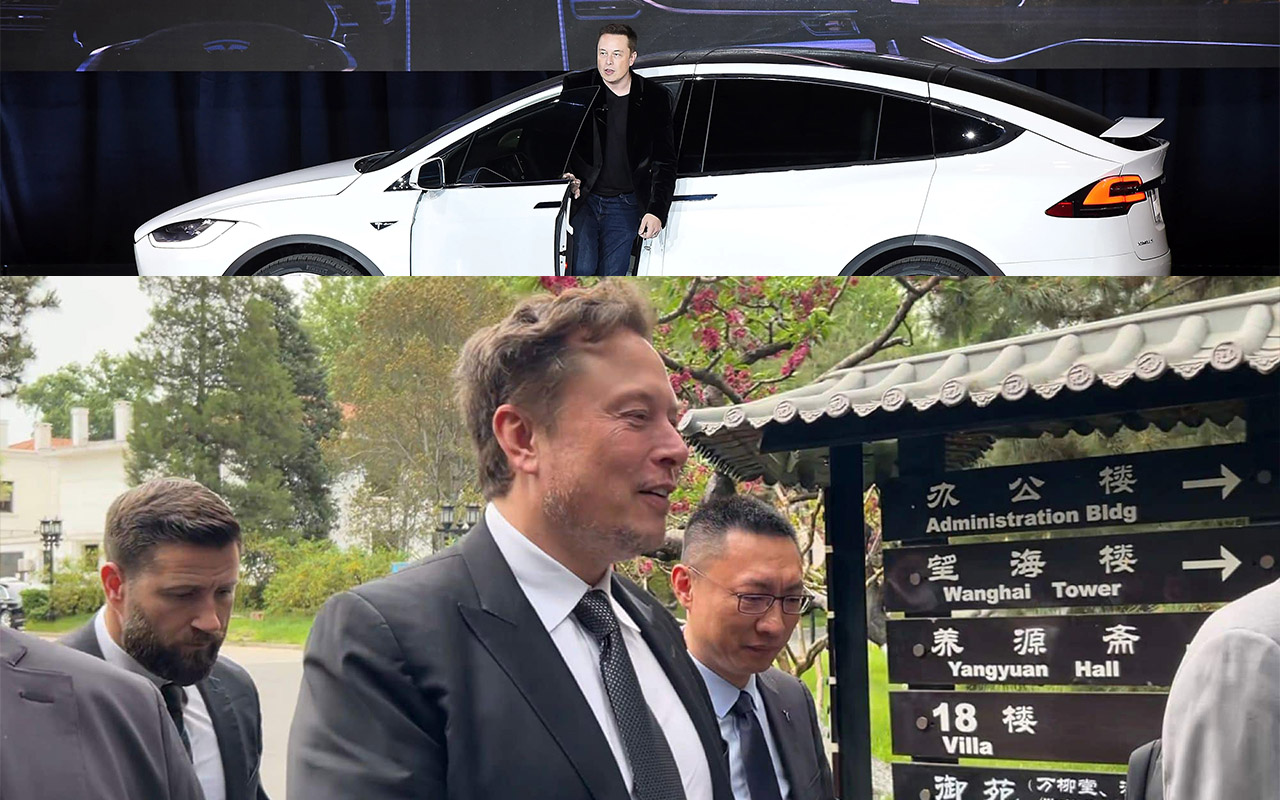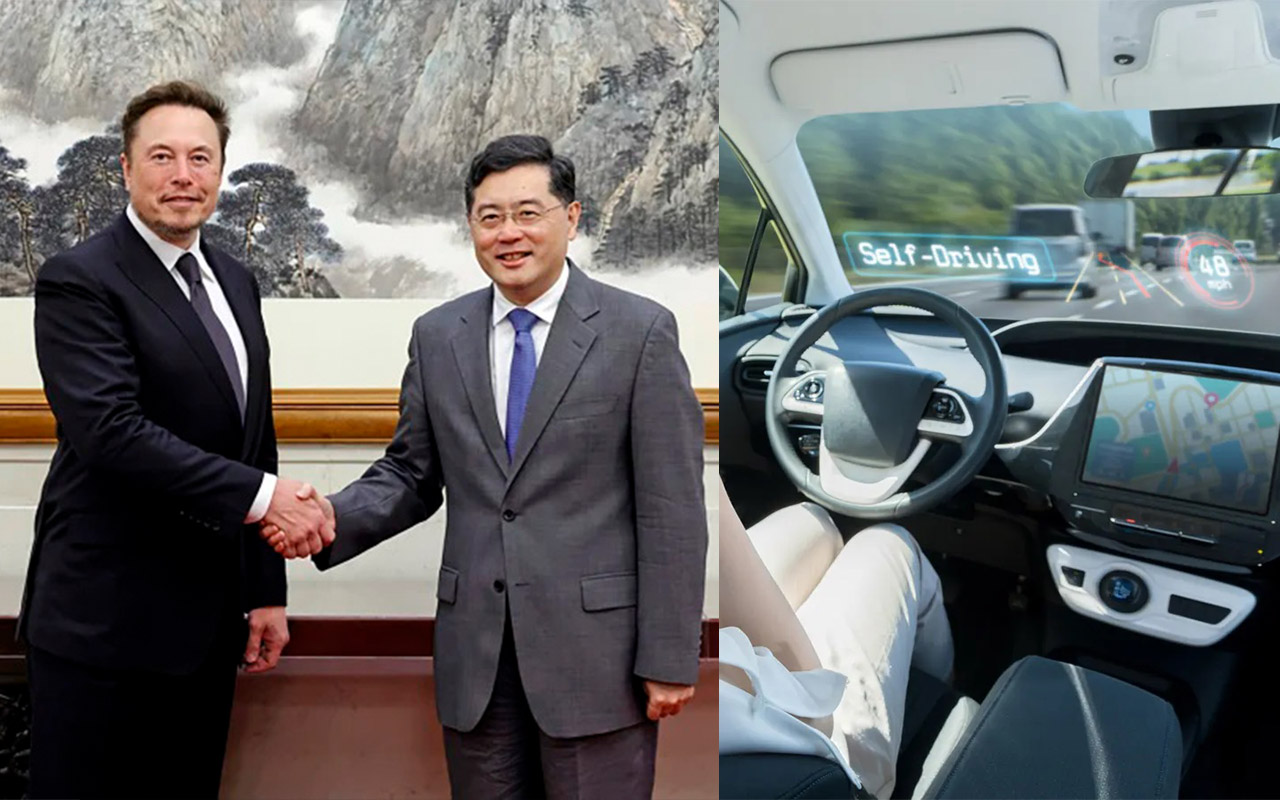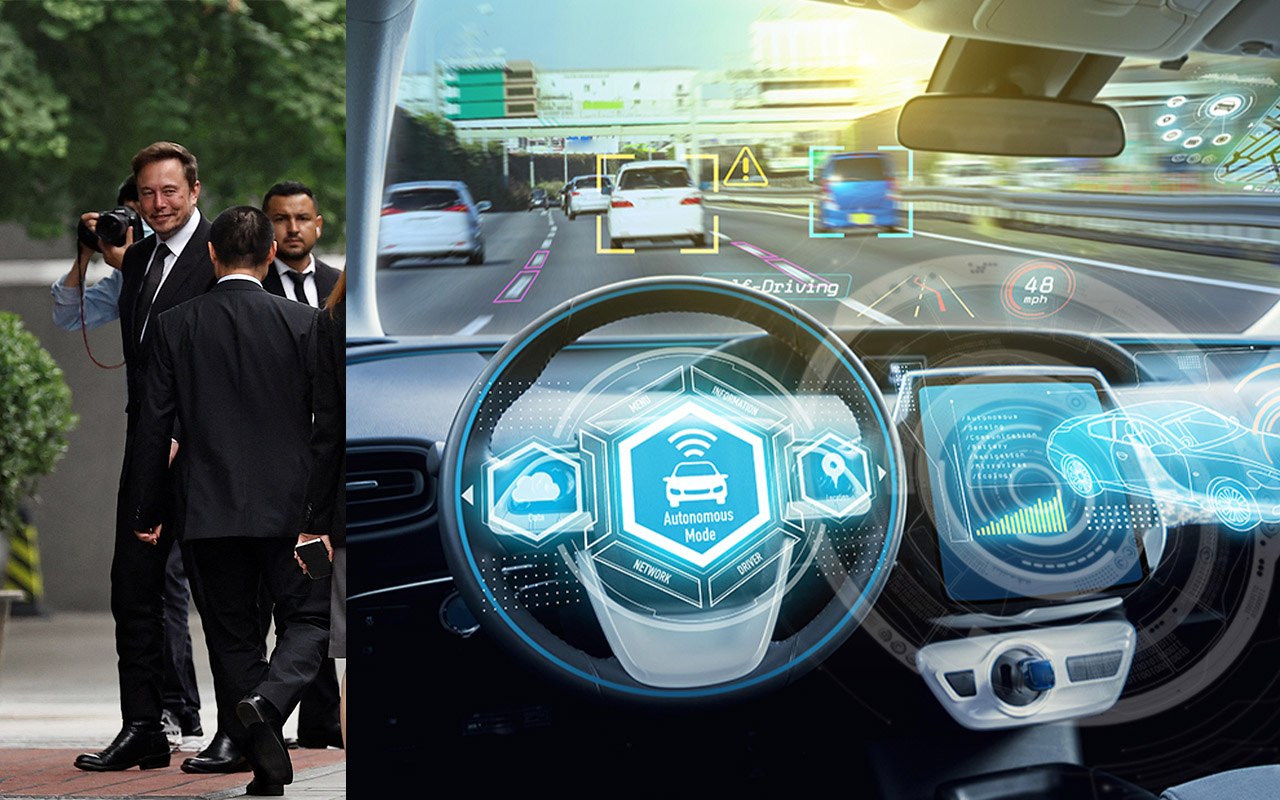Elon Musk’s unexpected journey to China seems to have yielded significant results. The billionaire made a surprise trip to Beijing, engaging in discussions with senior officials and striking a deal with the Chinese search engine giant Baidu.
This whirlwind visit followed closely after Musk opted out of a scheduled trip to India to meet with Prime Minister Narendra Modi, citing prior Tesla commitments.
In Beijing, Musk met with Premier Li Qiang, China’s second-highest-ranking politician, to discuss the implementation of Tesla’s Full Self-Driving (FSD) technology in the largest automotive market globally.
Approval for the FSD software could potentially revitalize Tesla’s sales in China, which have faced challenges due to fierce competition from local competitors and growing concerns regarding electric vehicles (EVs).

The collaboration with Baidu focuses on enhancing mapping and navigation functionalities for Tesla’s autonomous driving software. This strategic move could provide a much-needed boost to Tesla, which has relinquished its market dominance in the world’s largest EV market.
Tesla has struggled amid intense price competition from Chinese counterparts, losing its status as the world’s leading EV seller to BYD in 2023. Additionally, China’s economic slowdown and uncertainties in the property market have subdued consumer demand, affecting high-value purchases.
The approval of FSD could significantly impact Tesla’s revenues, as the company charges $8,000 for the technology in the US or offers a subscription at $99 per month.
Dan Ives, an analyst from Wedbush, highlighted the potential of the deal, stating, “This could open up FSD in China, which I view as unlocking what could be, really, the golden opportunity for them.”

Chinese authorities also announced that Tesla’s locally manufactured cars now meet data-security requirements. This development comes after Beijing’s previous concerns over security issues related to Tesla vehicles’ cameras, leading to restrictions on their use by state personnel in 2021.
Musk’s visit to China coincided with challenging times for Tesla. The company reported its first quarterly revenue decline since 2020 during its recent earnings call, falling short of Wall Street’s already modest expectations. Tesla has also implemented workforce reductions of around 10% and faced recalls for its recently launched Cybertrucks.
Despite these challenges, Tesla’s stock surged following Musk’s announcement of the imminent release of more affordable EVs. Although specifics regarding pricing and availability were not disclosed, the news reassured anxious investors.
The stock’s upward momentum underscores the enduring influence of Musk’s promises on investor sentiment. Tesla is expected to see a nearly 10% increase in stock value when trading resumes.
While contending with formidable competition from China’s automotive industry, Musk’s visit demonstrates his resolve to confront challenges head-on.
Tesla did not provide immediate comments when contacted by Business Insider outside regular working hours.







Leave a Reply